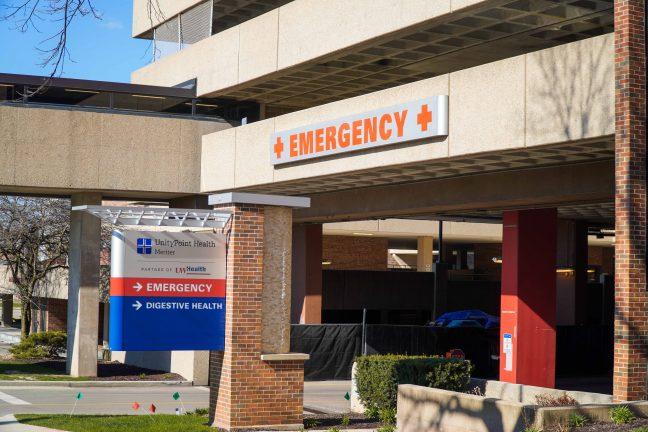CONTENT WARNING: Discussion of mental health issues, including burnout, depression and mention of suicide. If you or someone you know is having suicidal thoughts, please contact the National Suicide Prevention Lifeline at 1-800-273-8255
In many occupations, burnout is commonplace. As college students, we expect fall to bring homesickness, numerous social events and a heavy course load which all add up to mental and physical exhaustion.
But, healthcare jobs ask more of their clinicians. When lives are on the line, people working in healthcare cannot take a mental health day. In the midst of the second COVID-19 wave, Wisconsin’s frontline healthcare workers are reaching burnout, and this is why students should pay attention.
Burnout is defined as “emotional exhaustion, detachment and a low sense of personal accomplishment.” The Physicians Foundation reported prior to the pandemic that 40% of physicians reported burnout. That number is now up to 58%.
Let’s contextualize these figures. In early 2020, healthcare workers were operating on low fumes during the first wave. The novel coronavirus was new to the U.S., and healthcare workers were our heroes. As hospitals switched shifts, families at home banged pans, rang bells and whistled out their windows to the heroes in support.
Now, nine months into the pandemic, the second wave has begun and support for our heroes is less outspoken. This is no longer a novel experience for doctors and nurses, and it must be utterly devastating to see such little progress made after such a fierce fight in March and April. This is why our healthcare professionals are burning out.
Burnout has taken a toll on the mental health of UW healthcare workers, requiring the system to beef-up its mental health resources for employees. According to Dr. Michael Brin from Mequon, Wisconsin, many healthcare workers isolate themselves from family members and pour themselves into their work. Hours are long, especially in the ER, and it is hard to remove yourself from the trauma of the day, a mistake that Dr. Brin says he has made.
In more severe cases, healthcare workers nationwide have reached extreme levels of depression. Dr. Lorna Breen of New York devastatingly committed suicide after “treating patients nonstop and even contracting the virus herself.”
Still, Brin said he is “happily shocked” we haven’t seen a higher rate of suicide provoked by the pandemic. I have also anxiously wondered about this as well. We may have supported clinicians enough during the first wave with cheering and care packages, but now that rallying around these heroes is rare, I fear the second wave of coronavirus cases will spark a greater number of mental health-related tragedies.
Company-sponsored and funded mental health programs are vital, and they have been continually funded throughout this crisis. University of Wisconsin students, however, can play a crucial role in supporting and aiding healthcare workers during the second wave.
In terms of mental health support, our generation has become something of experts on the subject. I have yet to meet a peer that has not experienced anxiety, burnout and even mild depression at some point.
We have been raised in an age where global disaster, social media pressure and academic rigor feels like a concrete ceiling pushing down on us. While I don’t believe I will ever fully understand the trauma and hardship that healthcare workers internalize daily, I sympathize with their ongoing stress.
Maybe it is time for science to turn to young people. We are a case study for powering through negative mental health, and we are millions of participants strong. Students have reached their lowest points while at school, as depression and suicide run rampant at rigorous colleges. We have motivated one another to speak openly about mental health struggles, and have found countless ways to improve mental wellbeing.
Perhaps this second wave is grounds for a new program in which students can offer services to healthcare workers such as Zoom meditation, group therapy or maybe even lighthearted sessions of comedy, art or book reading. Maybe our aid would prove useful in pressuring administrators to support their healthcare professionals in a higher capacity.
Since many college students will soon be home for break, we should take that time to investigate how we can be most useful. I am hopeful we can turn burnout around, even if the coronavirus shows no signs of slowing.
Emma Axelrod (eaxelrod@wisc.edu) is a junior studying political science and journalism.


